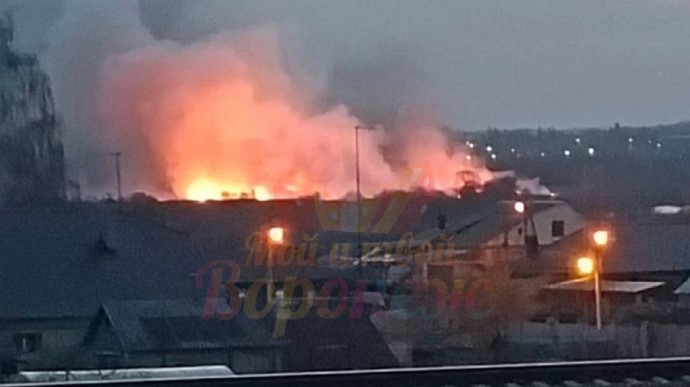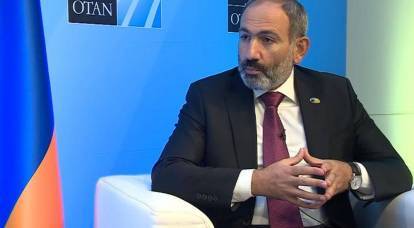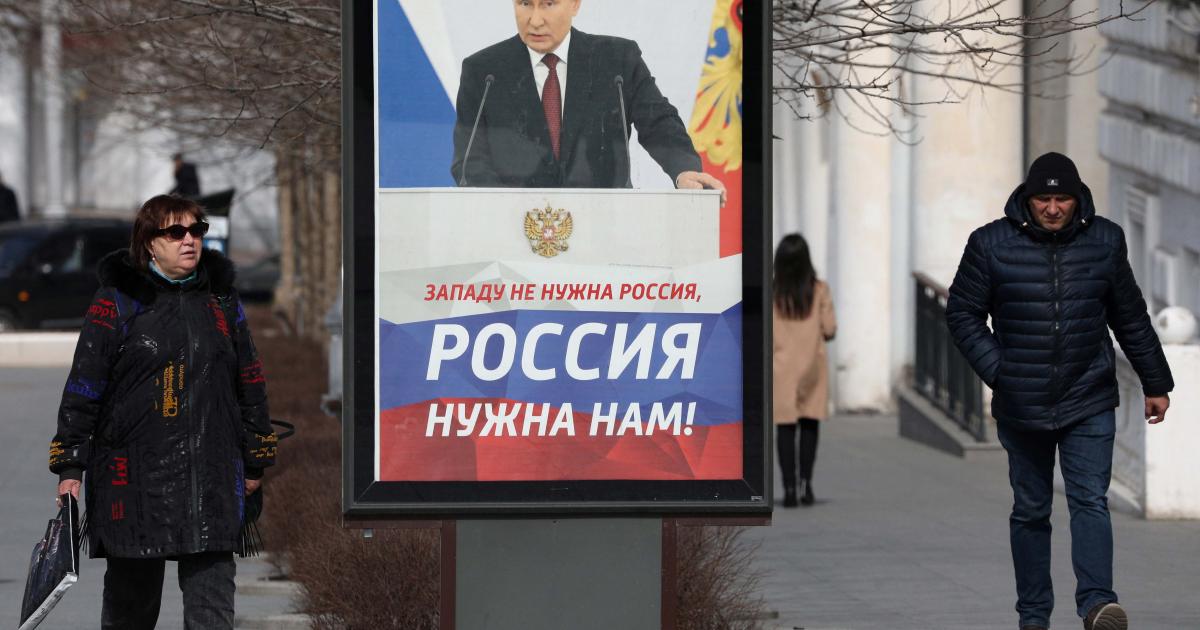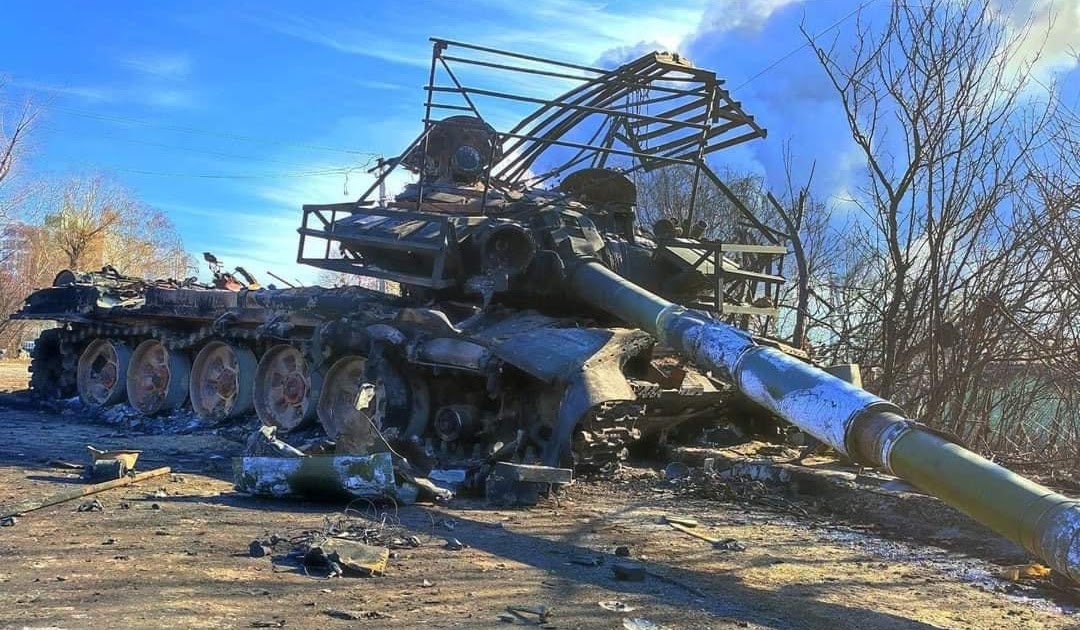For more than two decades, ordinary people in Vladimir Putin’s Russia could count on at least one fundamental right: the right to remain passive. As long as they were willing to turn a blind eye to corruption at the top and the never-ending rule of the Putin regime, they were not required to demonstrate active support for the government. Whatever Russia was doing in the world need not concern them. Provided that they did not interfere in the affairs of the elite, they were free to live their lives.
Since the Russian government announced its “partial mobilization” in September–October 2022, that right has been taken away. No longer is it possible to stay disengaged. More and more, Russians who are economically dependent on the state are finding that they have to be active Putinists—or, at the very least, pretend to be. Conforming to the regime and showing support for the “special operation” have now become almost essential to good citizenship. It is still possible to avoid showing feality to the autocrat, and Russia is not yet a fully totalitarian system. But a significant stratum of society—teachers, for example—are forced to participate in public acts of support, such as the patriotic lessons that are now mandatory in schools on Mondays. Often these are mere rituals, but sometimes the sentiments are real. Voluntary denunciations have become frequent and are, in fact, encouraged. Consider the infamous case of the teacher who denounced a 13-year-old girl for drawing an antiwar picture: the girl’s father was arrested, and she was placed in an orphanage. In April, former President Dmitry Medvedev called on civilians to denounce those who receive money or jobs from Ukrainian sources.
For
Putin, the creation of this new obedient Russia is in some ways as important as what happens in Ukraine. Almost since the start of the invasion, the Kremlin has been fighting a second war in Russia itself, and this war is unlikely to go away even if the conflict in Ukraine becomes frozen. Russian civil society will continue to face systematic suppression. The regime understands that by creating an atmosphere of hatred and mutual distrust, it can make part of society itself more intolerant of those who oppose Putin and the war. Whereas former Soviet heroes were people such as Yuri Gagarin, who was the first to conquer space, now the examples of “heroic” behavior are by members of separatist formations or pro-war bloggers with a criminal past—such as the recently murdered blogger with the pseudonym Vladlen Tatarsky. The war has vaulted these people to the top and turned them into “heroes.”
BASIC INSTINCTS
Russia’s war at home was set in motion well before the
invasion of Ukraine. Over the past decade, as his hyperauthoritarian model of government matured, Putin was able to awaken in the Russian public a demand for imperial greatness that had long lain dormant. As it slowly replaced bourgeois consumerism with great-power rhetoric and an assault on civil society, the government found a mostly pliant audience in a population that was accustomed to market relations but that did not understand the practical meaning of democracy. But a qualitative leap in public sentiment came with Putin’s annexation of
Crimea in 2014. “That’s it. We have become great again!” many thought. In turn, this imperial impulse and also Russia’s growing separation from the West encouraged people to embrace a more primitive understanding of the world.
That does not mean that Russians wanted war: they wanted a normal life. But the motherland, represented by Putin, came calling:
We were attacked. We responded with a preemptive strike, and must stay united. Those who are against are national traitors. After more than a year of war, these attitudes have become entrenched in the popular consciousness. Yes, there is war fatigue, and more than half of respondents in polls by the independent Levada Center say they want peace—though, as a rule, while still keeping Donbas and Crimea for Russia. But the erosion of public morality has been dramatic.
Amazingly, for ordinary people, Putin’s selling point is no longer modernization and the economic rewards and rising standards of living it promised, but regression to a more brutish past. There is a growing pride in Russia’s reliance on its own resources and its self-image as a uniquely tough country armed with both
nuclear weapons and savage mercenaries. Since the war began, a small but highly vocal segment of Russian society—perhaps 15 percent, as some sociologists estimate—has demanded ruthlessness to Russia’s enemies and suspicion toward any fellow citizens who do not toe the party line—and who might turn out to be a threat to the nation or, to use Putin’s term, “scum.” An increasingly arbitrary justice system now hands down hefty prison sentences to dissenters, and a public culture of extrajudicial violence is being normalized by Yevgeny Prigozhin, the head of Wagner, the paramilitary contractor with close ties to the Kremlin.
But the
shift in public attitudes has also coincided with a different and more important change: how Russians relate to the regime. Previously, Russian society was defined by an us-versus-them model. The “us” were ordinary Russians, powerless but mostly left alone; “they” referred to those at the top, in the Kremlin and at other imposing addresses, those who lived in palaces and holidayed on yachts and looked down with contempt on the people. As a result of the war, however, that vertical model has been transformed into a different, much more horizontal one. Now, “us” means all Russians, including Putin and his entourage; “they” refers to the hostile powers—Europe, NATO, and the United States—that are trying to tear away Russia’s historical territory. According to this model, all previous differences between the people and the regime must be forgotten because Russia is under attack. People must come together for the motherland; indeed, they must be ready to give up their lives for it. It is important to emphasize that these dictates are not accepted by all, but their incessant repetition has had a hypnotic effect on many, and some, in order not to stand out, have made a habit of repeating them.
As for the economic damage caused by this confrontation with the West, Russians have learned to cope. Even a fortress under siege has ways to acquire vital necessities, and the regime has proved adept at exporting goods to the east and importing contraband through, for instance, Turkey or some Central Asian countries. So far, relatively effective Central Bank policies and technocratic economic management have saved Putin from accusations of socioeconomic failure (and this is despite the serious state budget revenue problems that are already apparent). As a result, Prime Minister Mikhail Mishustin, who is closely identified with the country’s economic policies and has studiously avoided being portrayed as a war economist, has become increasingly popular. According to the Levada Center, when Russians are asked which politician they trust the most, Mishustin is now named more often than Foreign Minister Sergey Lavrov and Defense Minister Sergei Shoigu and is second only to Putin.
For both active Putin supporters and passive conformists, the war is no longer just a part of everyday existence. It is a way of life. And instead of rationalizing it as a prolonged disruption, they have begun to see it as something more
permanent. Sure, everyone understands that victory is the goal. But that goal has been pushed so far into the future that it has become as symbolic and distant as the final stage of communism was for several generations of Soviet people. To enter a permanent state of war, many Russians have had to come to terms with the twisted logic of the person who initiated the conflict and dragged the nation into it. In other words, they have sought psychological comfort in the regime and the idea of national unity it embodies, no matter how damaging that might be to their own lives and the country’s future. Either you are with us, supporters of Putin have learned to think, or you are a national traitor.
DICTATOR WITHOUT BORDERS
How has it been possible for so many Russians to accommodate this extreme situation so readily? First, many feel the compulsion to stay in the social mainstream and go with the flow: this is what twentieth-century psychoanalyst Erich Fromm, writing about the social conditions that contributed to fascism, famously called “escape from freedom.” No one wants to be branded an outcast or enemy of the people. But second and equally important is the ability of ordinary people to accept radically changed circumstances—as long as some elements of normal life can be maintained. Thus, everything about the war has been done only
part way: there has been a partial mobilization, a partial wartime economy, a partial mass repression, a partial erosion of living standards. In this form of partial totalitarianism, people have had time to adjust and experience each step in the decline from their previous way of life as a new normal.
Yet another explanation for Russians’ readiness to adapt is that Putin has alternated
mobilization—in both its military meaning and emotional sense—with demobilization. Right now, the country is in a demobilization phase: in his speeches and state visits, Putin stresses socioeconomic issues, and to the extent that the government is seeking a further military draft, it avoids calling it that, using instead such bland bureaucratic phrases as “clarification of military record data.” In other words, Russian society has entered another period of getting used to war. And as long as Russians experience the war as partial, rather than total, they are unlikely to feel overly concerned about it. According to the Levada Center, ordinary Russians continue to show declining interest in events in Ukraine. In September, when the partial mobilization was announced, some 66 percent of the population said it was following the war to a greater or lesser degree. By March, however, that figure had dropped to a bare majority of 53 percent, with 47 percent admitting that they were paying little or no attention to the war.
But Russians have also been helped by the new historical narrative that Putin has given them. Here, a mythologized version of
national history has been used to justify hostility to both the West and enemies at home. The Kremlin has conjured a pantheon of true defenders of the motherland, in which the medieval prince Alexander Nevsky, the sixteenth-century despot Ivan the Terrible, and Joseph Stalin sit side by side with the tenth-century Prince Vladimir, the seventeenth-century tsar Peter the Great, and Vladimir Putin. This grandiose, mostly imperial, and always glorious story also helps many Russians come to terms with their current reality: since they were always special, and since they have always been under attack, they have no choice but to keep living in a state of permanent conflict with the West.
It is still possible to choose another path: inner emigration—opting out of the political process—is still an option for many people, as is actual exile. Russian society now inhabits a strange borderline between
authoritarianism and totalitarianism, between the obligation to consider the demands of the state in everything and the ability to exercise certain freedoms, however limited, in private life. The country has become a borderline state, in all senses of the word. Russia’s borders are mobile right now. They depend largely on events at the front and, crucially, are not recognized by the rest of the world. Existing in this uncertainty is not exactly comfortable, but it is possible. The post-Soviet era gave rise to the phenomenon of unrecognized states—Abkhazia, South Ossetia, Transnistria—and they have existed in limbo for years. Now Crimea and the Donbas find themselves in the same situation. There appears to be no end to that status either—at least not before the end of Putinism.
TRAIN TO NOWHERE
At this point, it is very hard to determine what victory or defeat would look like for Putin and his active or passive supporters. Even if a cease-fire can be negotiated, the conflict seems likely to be doomed to periods of freezing and unfreezing. And no matter what happens in Ukraine, Putin’s regime will continue its repression of anyone who thinks differently or who puts up any resistance—or even just refuses to publicly support it. These policies will continue regardless of whether Russia is actively fighting the war against Ukraine and the West or finds itself in a cold or dormant phase of conflict. And they may well find support from the Putinized public.
In addition to the new hatred directed against those who have retained a conscience and who feel guilt about the disaster wrought by their government, there is the question of the many Russians who come back from the trenches. What do they think, and what will they do? Who are they, and who will they target with their own anger? Will they hold their own political power, or will they become yet another group of outcasts? What impact will their war syndrome have on the public atmosphere? These important questions remain unanswered.
For now, Putin may be under the impression that there is genuine unity among his people; that the war is becoming—as the Kremlin spin doctor Sergey Kiriyenko puts it—a “people’s war”; that a group of frustrated soldiers and their families is emerging who would like to see vengeance wrought against the West and Ukrainians for everything they have been through. So far, Putin has managed to keep the elites in check. He has also managed to bring back chauvinistic and messianistic
ideology and reverse the modernization of a society that had been de-ideologized and modernized. He has mobilized a lot of people to support the war—in both the social and the military sense. No wonder he considers himself omnipotent.
Putin has managed to concentrate enormous power in his hands. But the more power he accumulates, the harder it will be for him to relax and hand over the reins. He cannot afford to liberalize the system or decrease his dictatorial authority. There is only one way left open to him: to cling to power until the bitter end. Putin is in the same position in which Stalin found himself at the start of the 1950s. It was in those late years that the Soviet dictator had to resort to absurd and irrational measures to shore up his power, from paranoid threats to his own closest companions to combating “rootless cosmopolitans” and supporting obscurantist theories in science. For this reason, Putin needs a permanent war with those he deems “foreign agents” and national enemies—his own “rootless cosmopolitans.” It is a war that has to be carried out at home and abroad, whether hot or cold, direct or hybrid. And Putin has to keep moving all the time: stopping is a luxury he cannot afford.
Recognizing this fact offers little comfort to those hoping for a resolution to the war. But when a train has no brakes, it may crash into a wall. It might also simply run out of fuel and grind to a halt. For now, it is full steam ahead—to nowhere, because no one knows where it is going. That includes the driver.





